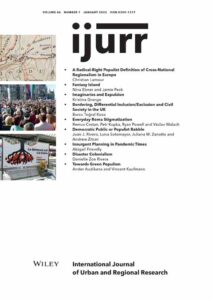Disasters are often, outside disaster studies, viewed as singularities. This characterization of disaster disallows analysis of racial violence and dispossession structurally instituted across multiple disasters. As a result, repeatedly poor pre‐disaster and post‐disaster planning is leveraged to displace and disenfranchise marginalized communities. With climate change, disasters are projected to become more intense and frequent, necessitating a serious inquiry into inequalities occurring across repeated disasters. This essay uses theories of colonialism and coloniality from Puerto Rico to examine how colonialism operates through repeated disaster, in this case hurricanes. Building off of research on environmental colonialism in Puerto Rico, the concept of disaster colonialism is proposed to explain how procedural vulnerability is deepened through disasters and subsequently leveraged to deepen coloniality. To illustrate the utility of this term, a brief overview of Puerto Rico’s environmental history with hurricanes is examined through the lens of disaster colonialism. Ultimately, the commentary poses three questions to planners relative to the concept of disaster colonialism.
Details
Written by:
Danielle Zoe Rivera
Digital Object Identifier (DOI)
10.1111/1468-2427.12950
About DOI

